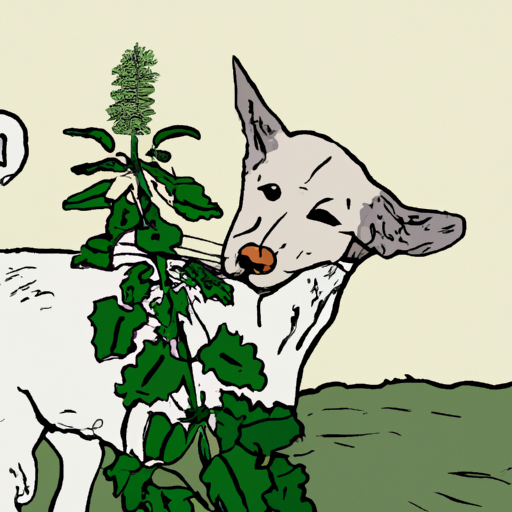The Basics of Catnip
First off, let’s clarify what we’re talking about here. Catnip, or Nepeta cataria, is a plant from the mint family. It’s most commonly known for its profound effect on some cats, causing behaviors such as rolling, jumping, purring, and even aggression.
You might be thinking, “What about our canine friends? How does catnip affect dogs?” Well, you’re in the right place to find out.
What Happens When Dogs Encounter Catnip?
If your dog has ever come across a patch of catnip or a catnip-infused toy, you may have noticed a change in their behavior. Unlike cats, dogs don’t respond to catnip with the same level of intensity. However, it does have some effects on dogs, albeit different ones.
- Sedative Effect: Catnip can have a sedative effect on dogs. In fact, it’s often used in natural remedies to help dogs with anxiety or hyperactivity issues.
- Attraction or Repulsion: Some dogs are attracted to the smell of catnip, while others are repelled by it. This depends largely on your dog’s individual preferences.
Is Catnip Safe For Dogs?
Yes, catnip is generally safe for dogs. However, it’s always important to observe moderation in all things, and catnip is no exception.
- Ingestion: Ingesting a small amount of catnip is unlikely to harm your dog. However, if your dog consumes a large amount, it could potentially result in mild gastrointestinal upset.
- Inhalation: As with humans, inhaling any substance can potentially cause respiratory irritation. Monitor your dog for coughing or wheezing after exposure to catnip.
What Alternatives to Catnip Are There For Dogs?
While catnip isn’t harmful to dogs, it’s not their favorite herb either. Luckily, there are some alternatives that your dog might find more appealing:
- Anise: Similar to licorice, many dogs find anise enticing. It’s often used in dog toys and treats.
- Valerian Root: Known for its calming effect, valerian root is a good alternative for anxious dogs.
- Chamomile: This herb can be beneficial for dogs with stomach issues. It’s also used as a relaxing aid.
| Herb | Effect on Dogs |
|---|---|
| Anise | Enticing |
| Valerian Root | Calming |
| Chamomile | Relaxing, Digestive Aid |
Frequently Asked Questions
Q: Can dogs have catnip?
A: Yes, dogs can have catnip. However, it’s always best to monitor their reaction and ensure they don’t consume it in large quantities.
Q: Does catnip have the same effect on dogs as it does on cats?
A: No, the effects of catnip on dogs are quite different from those on cats. It can have a mild sedative effect on dogs and can either attract or repel them.
Q: What can I use instead of catnip for my dog?
A: There are several alternatives to catnip for dogs, including anise, valerian root, and chamomile.
Remember, as a caregiver, it’s always important to observe your dog’s behavior and consult with a vet if you notice any adverse reactions. Just as with humans, every dog is unique and may react differently to certain substances. Always keep your dog’s health and happiness as your top priority!



